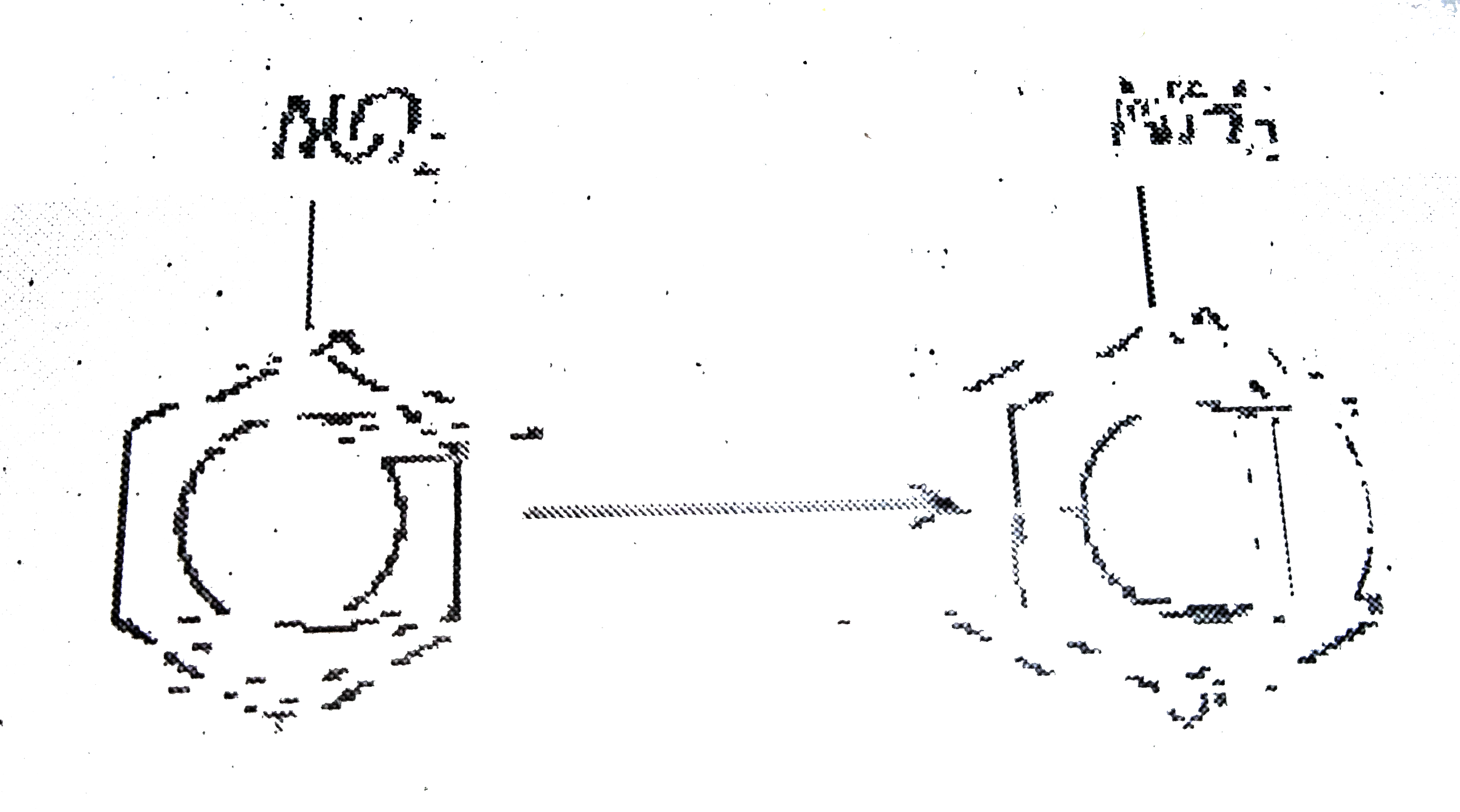Which of the following reagents cannot be used for the oxidation
of 1∘ alcohol to aldehyde?
PCC
Collin's reagent
MnO2
KMnO4
The correct Answer is:D
To determine which reagent cannot be used for the oxidation of a primary alcohol to an aldehyde, we will analyze the given reagents one by one.
1. Identify the Reagents: The reagents mentioned in the question are PCC, Collins reagent, MnO2, and KMnO4.
2. PCC (Pyridinium Chlorochromate):
- PCC is known for its ability to oxidize primary alcohols to aldehydes.
- It works effectively in the presence of CH2Cl2 (dichloromethane).
- Conclusion: PCC can be used for the oxidation of primary alcohols to aldehydes.
3. Collins Reagent:
- Collins reagent consists of chromium trioxide (CrO3) and pyridine, and it is also effective in oxidizing primary alcohols to aldehydes.
- Conclusion: Collins reagent can be used for the oxidation of primary alcohols to aldehydes.
4. MnO2 (Manganese Dioxide):
- MnO2 is another reagent that can oxidize primary alcohols to aldehydes.
- Conclusion: MnO2 can be used for the oxidation of primary alcohols to aldehydes.
5. KMnO4 (Potassium Permanganate):
- KMnO4 is a strong oxidizing agent that typically oxidizes primary alcohols to carboxylic acids rather than aldehydes.
- While it can oxidize secondary alcohols to ketones, it does not selectively oxidize primary alcohols to aldehydes.
- Conclusion: KMnO4 cannot be used for the oxidation of primary alcohols to aldehydes.
Final Answer:
The reagent that cannot be used for the oxidation of a primary alcohol to an aldehyde is KMnO4.
---
- PCC is known for its ability to oxidize primary alcohols to aldehydes.
- It works effectively in the presence of CH2Cl2 (dichloromethane).
- Conclusion: PCC can be used for the oxidation of primary alcohols to aldehydes.
- Collins reagent consists of chromium trioxide (CrO3) and pyridine, and it is also effective in oxidizing primary alcohols to aldehydes.
- Conclusion: Collins reagent can be used for the oxidation of primary alcohols to aldehydes.
- MnO2 is another reagent that can oxidize primary alcohols to aldehydes.
- Conclusion: MnO2 can be used for the oxidation of primary alcohols to aldehydes.
- KMnO4 is a strong oxidizing agent that typically oxidizes primary alcohols to carboxylic acids rather than aldehydes.
- While it can oxidize secondary alcohols to ketones, it does not selectively oxidize primary alcohols to aldehydes.
- Conclusion: KMnO4 cannot be used for the oxidation of primary alcohols to aldehydes.
The reagent that cannot be used for the oxidation of a primary alcohol to an aldehyde is KMnO4.
Similar Questions
Knowledge Check

Which of the following reagents can be used for above conversion?AZn/ΔBMg/ΔCNaI/acetoneDAlc. KOHWhich of the following reagents can be used for identification of phenol ?
ANeutral FeCl3BNaNO2+HClC(NH4)2[Ce(NO3)6]DZnCl2/HClWhich of the following reagents cannot be used for the reduction of carboxylic acid to alcohol?
ANaBH4BH2 and Pt catalystCLiAlH4DNaBH3CN
Which of the following reagent is not used to carry out the reaction
_2019_CBT6_E01_003_Q01.png)
View SolutionWhich of the following cannot be used for the preaparation of iodofrom ?
View SolutionWhich of the following reaction cannot be used for the preparation of alkane?
View SolutionWhich of the following reagents cannot be used for the preparation of hydrogen peroxide ?
View SolutionWhich of the following reagents can be used to differentiate 1∘ and
3∘ alcohols ?
View Solution


